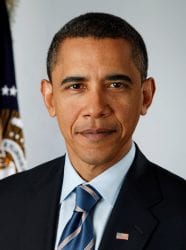The Weaponization of Plagiarism
When plagiarism is a weapon, everyone loses... except plagiarists.
 Plagiarism scandals are inherently strange things. They cost journalists their jobs, they stop budding writers before their careers get started and they can even force politicians to resign.
Plagiarism scandals are inherently strange things. They cost journalists their jobs, they stop budding writers before their careers get started and they can even force politicians to resign.
Plagiarism scandals, quite literally, can change the world.
However, plagiarism is rarely black-or-white. It’s possible, even after all of the facts are known in a case, for there to be legitimate disagreements about how serious the plagiarism is or whether plagiarism occurred at all.
To make matters worse, it’s usually not experts familiar with the ins and outs of the case that determine the outcome. It’s a combination of public outcry and/or employer response that determines the result. However, the public rarely has access to all of the evidence and an employer may not be an expert in interpreting it.
This makes the outcome of plagiarism scandals highly unpredictable. It’s possible for two people with every similar stories to receive wildly different punishments.
But, while all of this is worrisome enough, there’s another aspect to plagiarism scandals that almost no one is talking about: That many, if not most, of them begin not with a desire for truth, but for a desire to destroy or harm.
This has turned the plagiarism scandal into a tool for political or personal gain and away from a tool for improving ethics in writing, research and academia.
Simply put, plagiarism has been weaponized by those who want to change the world to their whims. That, in turn, is not just hurting the conversation around plagiarism, but making it harder to learn the truth about many plagiarism scandals.
The Three Ways for Plagiarism to Come to Light
 Generally speaking, there are three ways (or combinations thereof) someone can discover plagiarism.
Generally speaking, there are three ways (or combinations thereof) someone can discover plagiarism.
- A Neutral Party: A neutral party, such as a reporter, can discover the plagiarism, usually on accident. This is what happened in the Melania Trump case last year, when a laid off journalist made the discovery because he remembered the lines involved.
- The Victim: Sometimes the victim finds the plagiarism. This can happen on accident by reviewing similar literature and realizing that the work is a bit-too-familiar or by simply seeking out plagiarists. This is what happened to Jayson Blair when a reporter he plagiarized called the New York Times to report the plagiarism.
- The Opponent: For one reason or another, political and ideological opponents can and do delve into the writing of their foes in hopes of finding plagiarism. The goal is to hurt their opposition’s credibility. This is what happened to Senator John Walsh, when a Republican researcher discovered the plagiarism and the GOP timed the release of the news to have the maximum impact on the election.
To be clear, no one of these sources are inherently better than the others. If the person performing the research is doing ethical and high-quality work, their motivations for beginning it don’t really matter.
Furthermore, low quality work can come from any motivation. Victims often overreact to imagined slights, something we see a lot in the movie and music industries, and neutral parties may not understand the nature of what they have found.
Still, there’s little doubt that plagiarism scandals brought forth by ideological and personal opponents are on the rise and that it’s having a drastic impact in the nature of how we discuss plagiarism.
Sadly, that change isn’t improving the dialog around plagiarism, if anything, it’s destroying.
The Tale of 2008 (and 2017)
 In the run up to the 2008 election, both soon-to-be President Barack Obama and Senator John McCain were accused of plagiarism by their opponents.
In the run up to the 2008 election, both soon-to-be President Barack Obama and Senator John McCain were accused of plagiarism by their opponents.
However, neither story had any significant merit. Both stories were, at worst, minor issues. Neither had any significant impact on the election as neither story represented a single significant plagiarism, let alone a pattern of it.
In more recent years, similar allegations were filed against Supreme Court Justice Neil Gorsuch ahead of his appointment, Betsy Devos faced her own allegations ahead of her appointment to the Department of Education and even President Trump himself faced overblown allegations ahead of the election.
In all of the above cases, even when there was a kernel of truth, it was overblown for political gain. This made it more difficult to address the potentially serious allegations, such as the ones against Monica Crowley and David Clarke.
The reason is because political plagiarism scandals, much like politics in general, are polarizing. Once it’s alleged, how serious the allegations are usually have more to do with how you view the candidate than the actual plagiarism.
Between 2008 and 2016, my article on the Obama plagiarism scandal remained one of the top articles on the site day-to-day, mostly because people who didn’t care for him would link to it as “proof” he was a plagiarist, not realizing (or perhaps not caring) the article said the opposite.
But what this means is that, you’re researching a political opponent for plagiarism, it’s not in your best interest to do quality work. Instead, it’s in your best interest to find anything you can, no matter how small, and blow it out of proportion.
This problem of unclean hands make it difficult to trust a plagiarism scandal, especially against a political or otherwise controversial figure. The news rarely does a good job parsing the scandal because the nuance involved in plagiarism often doesn’t translate well to the rapid pace of modern news coverage.
This creates a serious problem where there is a seemingly endless number of plagiarism scandals but few have any consequences. Even worse, the ones of import can get lost in the shuffle and actual plagiarists who deserve to face consequences often walk away without any significant repercussion at all.
In short, the weaponization of plagiarism has produced not better plagiarism analyses, but more plagiarism noise. That, in turn, has hurt everyone involved, except actual plagiarists.
Bottom Line
To be clear, political opponents can and often do great work in this area. The aforementioned story of Senator John Walsh is an excellent example of a political opponent uncovering and reporting on real plagiarism that ended up having significant consequences outside of politics.
However, that case is the exception, not the norm. When opponents dig for plagiarism, they aren’t motivated to do good work and come up with nuanced answers. Instead, the reward is for finding something, anything, that can be used to attack their opposition.
This is why many, if not most, plagiarism scandals are treated with mistrust by the public unless they fit with pre-existing views.
To that end, plagiarism in politics has become a microcosm of politics itself. When every plagiarism story is something for us to dismiss, blow out of proportion or ignore as it fits into our world view.
Plagiarism is no longer a tool for discovering truth, but a tool for tearing down those we don’t like.
When that happens, the truth gets set aside, actual plagiarism gets ignored and plagiarism itself becomes less meaningful.
It’s a sad story but it’s the tale of plagiarism over the past decade. Plagiarism has become weaponized and its lost its meaning in the process.
Want to Reuse or Republish this Content?
If you want to feature this article in your site, classroom or elsewhere, just let us know! We usually grant permission within 24 hours.
